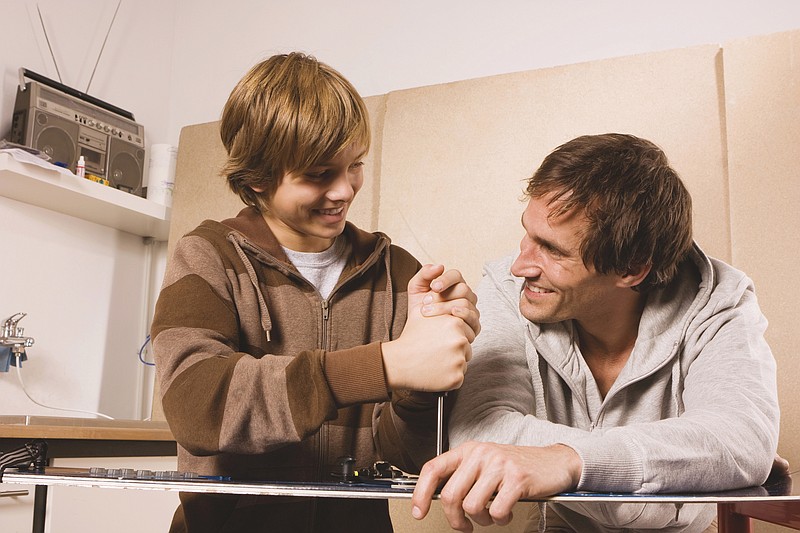When Bill's sons were young, he would occasionally - it didn't happen often - retreat to the bonus room where he could watch a ballgame.
Frequently, it seems, he would find dirty dishes in a space where food consumption was prohibited. Once when he found an empty cereal bowl that required two days of heavy soaking, Bill charged downstairs, frowned at his sons and yelled, "Why is the bonus room always such a mess?" The boys weren't sure what he was getting at, but they were certain they were in trouble.
Bill realized much later that kids and adults have different brains. He was asking a different question than the one he wanted answered, and he realized he hadn't always been setting the best example himself regarding food in the bonus room. Was the infraction a result of willful disobedience, simple forgetfulness or uncertainty over the policy compounded by the different standard for Dad?
A fine dance
The relationship between parent and child is interconnected, a composition that flows back and forth. Your teen has a special way of relating to the world and hearing your voice. As Thomas and Bonnie Liotta point out in their book, "A Simple Way To Guide Children and Teenagers to Happiness, Success and Gratitude," there are parent brains and kid brains. What you say and what they hear are not the same thing.
As the Liottas write, "It's not your job to make your kids happy, make them love you or win the contest of separated parents. Your job as a parent is to make sure your child has the life skills to be successful " You need to ensure your kids know your expectations and how to meet them. You'll discover pretty quickly if their disobedience is the result of a lack of understanding or simply personal will.
We know from research that it takes longer for brains to develop than we previously thought and that boys and girls progress at different rates. Boys, particularly, develop the pleasure and risk-taking areas much earlier than the quadrant for responsibility. (So now you have research to explain why your son acts the way he does sometimes!) The responsibility region may not mature until the early to mid-20s.
Avoiding bad parenting traits
It's sad to see a parent use harsh tactics or even violence to manage a child. It's puzzling when we see a child ignored and then suddenly yelled at for some unknown infraction. Parenting can be a challenging job. But when we fail to clearly outline expectations, provide adequate supervision or carry out consistent discipline, we must share some of the responsibility for the child's behavior.
How do we create a better relationship with our children? First, love your child and let him know it. Second, realize your role and carry it out. Third, honor your child. This is your beloved - treat her as such. Fourth, set your child's welfare at the center of what you do. Fifth, be consistent. Sixth, control yourself.
Tom Tozer and Bill Black are authors of the new book "Dads2Dads: Tools for Raising Teenagers." Like them on Facebook and follow them on Twitter at Dads2Dadsllc. Contact them at tomandbill@Dads2Dadsllc.com.

